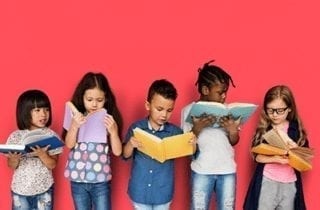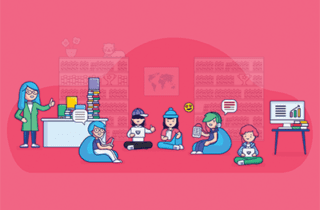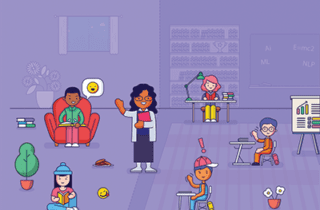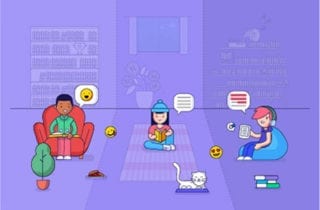Presented by Shannon McClintock Miller, District Teacher Librarian and Innovation Director, Van Meter Community School (IA); and Yevgen Borodin, Ph.D., CEO of Capti Voice and Research Professor at Stony Brook University
Moderated by Rita Ferrandino, Innovation Consultant, Catalyst @PennGSE University of Pennsylvania
Presented by Erik Palmer, Author, Speaker, and Advisor on HMH Into Reading and HMH Into Literature
Presented by John Lant, CEO, 4 Weeks to Read; Cheryl Lant, Founder, 4 Weeks to Read; and Kelly Jensen, Curriculum Director, Palmdale School District, CA
Presented by Samantha Reichard, Lead Real Time Teacher Coach, Charlotte-Mecklenburg Schools, NC
This edWebinar will emphasize tools and techniques for virtual teaching—and include candid sharing about what does and doesn’t work.
In this edWebinar, you’ll experience demonstrations of various free and low-cost tools that support anywhere, anytime reading for students of all abilities, whether they are learning in the classroom or on couches.
Join Megan Edwards from KIPP St. Louis Schools as she walks us through her plan to get ready for reading—no matter what happens next.
This presentation will describe how digital resources can serve as a bridge to accelerate learning and bring students“back to the page.”
This edWebinar will look at ways that teachers can customize digital summer reading programs for every student, measure their progress, and connect them to reading and to each other.
While printed books aren’t going away, today’s kids are wired to think digital first. Combined with increasing ways for teachers, students, and authors to interact online, digital reading is allowing students to connect with content on a deeper level. In their presentation, sponsored by Mackin Educational Resources, “The Transformative Power of Digital Reading,” Michelle Luhtala, Library Department Chair, New Canaan High School (CT), and Jane Lofton, Teacher Librarian “In the Wild,” offered tools and strategies for effective engagement with digital sources.











